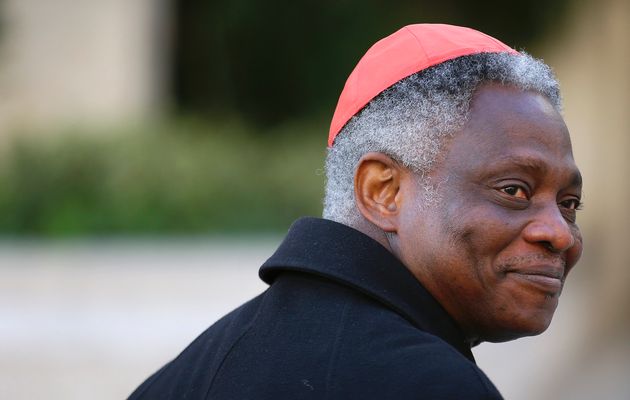It is quite remarkable. In a time when we are all learning to take up a zero-tolerance position against sexual abuse within our ranks (and, subsequently, outside our ranks as well), Catholics of all stripes are coming together in their opinions on one particular case. But on the side of the alleged abuser.
 Australian Cardinal George Pell, former archbishop of Sydney and, it turned out yesterday, retired Prefect of the Secretariat for the Economy as well (his mandate, which ended this month, was quietly allowed to end), has been convicted of the sexual abuse of two boys in late 1996. But, while official statements from the Australian bishops and the Vatican underline their respect for the legal establishment and their hope that the victims find some form of consolation and peace, manny commentators have expressed their doubts. Looking at the evidence available to the public (which, it has to be said, is not a complete picture as not all evidence and statements have been released by the court) many wonder if the events for which Cardinal Pell has been convicted could really have happened.
Australian Cardinal George Pell, former archbishop of Sydney and, it turned out yesterday, retired Prefect of the Secretariat for the Economy as well (his mandate, which ended this month, was quietly allowed to end), has been convicted of the sexual abuse of two boys in late 1996. But, while official statements from the Australian bishops and the Vatican underline their respect for the legal establishment and their hope that the victims find some form of consolation and peace, manny commentators have expressed their doubts. Looking at the evidence available to the public (which, it has to be said, is not a complete picture as not all evidence and statements have been released by the court) many wonder if the events for which Cardinal Pell has been convicted could really have happened.
Father Frank Brennan, who attended part of the court proceedings, has an excellent article about his questions on the case. In short, he wonders not just how the alleged abuse could have taken place when and where they did, but also why some of the very convincing arguments regarding location and the liturgical vestments said to have been worn by Cardinal Pell when he is said to have abused the two boys, were not taken into consideration. A least, they seemed not to have been.
Again, we do not known everything about the court proceedings. But what we do know has been enough reasons for Catholics on both sides of the spectrum – both those who think an orthodox cardinal like Pell can do no wrong, and those who automatically suspect him for being conservative – to wonder at the truth behind the conviction. The facts as we know them remain very hard to reconcile with the details of the allegations.
It is important to ask in how far a recollection of 20-year-old events by people who were teenagers at the time can ever be wholly accurate, and the jury must have taken this into account, reaching a verdict based on facts as well as the victims’ situation. In the end, a verdict must take their emotional involvement and the passage of time into account as well.
In the meantime, Cardinal Pell has been barred from exercising any form of ministry by the archbishop of Melbourne, where the trial took place – a standard precautionary measure – and remains in custody awaiting his sentencing, currently scheduled for 13 March. The cardinal’s legal team is appealing the verdict.
Photo credit: AAP Image/Erik Anderson via Reuters

 The Vatican gendarmerie arrested Msgr. Lucio Angel Vallejo Balda (pictured at left) and Ms. Francesco Chaouqui and held them in detention overnight. This morning both arrests were validated but Ms. Chaougui was let go, after having cooperated fully with the authorities, a Holy See press statement
The Vatican gendarmerie arrested Msgr. Lucio Angel Vallejo Balda (pictured at left) and Ms. Francesco Chaouqui and held them in detention overnight. This morning both arrests were validated but Ms. Chaougui was let go, after having cooperated fully with the authorities, a Holy See press statement  Alarm bells about the appointment of Francesca Chaouqui (pictured at right)
Alarm bells about the appointment of Francesca Chaouqui (pictured at right)  In five rounds, the German bishops this morning elected Reinhard Cardinal Marx to succeed Archbishop Robert Zollitsch as chairman of the German Bishops’ Conference. He is the sixth chairman since the conference came into being in 1966, and with his election it is once more led by a cardinal, as was the case pre-Zollitsch.
In five rounds, the German bishops this morning elected Reinhard Cardinal Marx to succeed Archbishop Robert Zollitsch as chairman of the German Bishops’ Conference. He is the sixth chairman since the conference came into being in 1966, and with his election it is once more led by a cardinal, as was the case pre-Zollitsch.